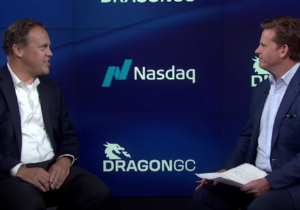
Forum Attendees Weigh Merits of Owning Shares of Tech Companies Before or After IPO
When a crowd of 275 attendees ranging from venture capitalists to CEOs met in Florida for last week’s Palm Beach Global Finance Forum to discuss investments, one asset in particular kept coming up: ride-sharing company Lyft and its abysmal stock-price performance.
The stock, which has fallen 22{efe5d79870c08482e17ab0c97855f89429dac5f22c46026d3ca83573faec2208} since its recent initial public offering, has been hobbled by worries about its path to profitability. Attendees including Bill Stone, Founder and CEO of fintech firm SS&C Technologies, which generated $640 million of operating cash flow last year, seemed unimpressed with Lyft’s business model.
“Today, there might be a Lyft that has $1 billion in revenue, but it’s got $2 billion in expenses,” Mr. Stone said in an onstage interview moderated by IPO Edge. “For an old accountant like me that’s a bad way to run a railroad.”
Some at the conference noted that while Lyft provides an important service and may be a valuable company, it was unclear if public shareholders stood to make much money from the investment.
“Forum participants hailed from around the nation with several high-profile billionaires among the group,” said David Goodboy, Founder of the Palm Beach Hedge Fund Association, which hosted the event with support from Markets Group. “Allocators made up a significant percentage of the attendees, and one topic of discussion stood out: a possible shift of interest away from public-market to pre-IPO investments.”
Indeed, one venture capitalist who has been in the industry for three decades pointed out a difference in the typical company’s path to public markets. In the 1980s and 1990s, many companies would consider a public listing sooner – before valuations swelled to several billion dollars.
But in recent years, it has become more difficult to list as a smaller company for a number of reasons. There are fewer small brokers willing to make a market in such stocks, thanks partly to the demise of fractional trading that helped such outfits earn profits.
What’s more, many venture capitalists and other early investors simply don’t need a public liquidity event to mark – or take – profits. A vibrant secondary market for such shares means it’s reasonably easy to enter and exit investments long before public investors have a chance to own them.
Still, some are skeptical of the notion that “accredited investor” rules surrounding income and net worth keep regular investors away from pre-IPO shares.
Bob Silvani, an investment industry veteran with an eye toward the pre-IPO opportunity, said it’s misleading to suggest “the average” Joe doesn’t get the best deals because of regulations. “they probably do not have the stomach for the risk either,” he said.
Contact:
John Jannarone, Editor-in-Chief
Twitter: @IPOEdge
Instagram: @IPOEdge





